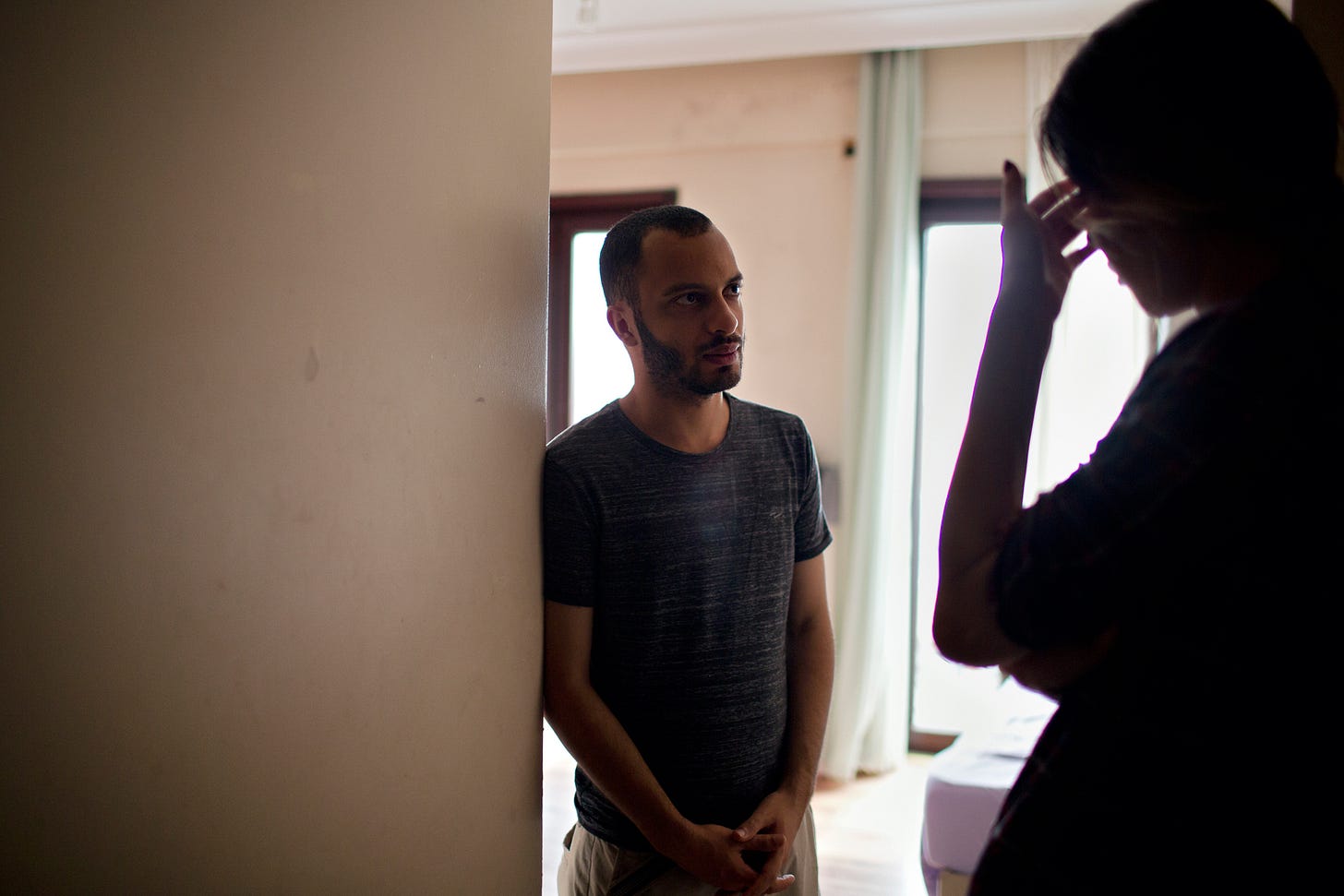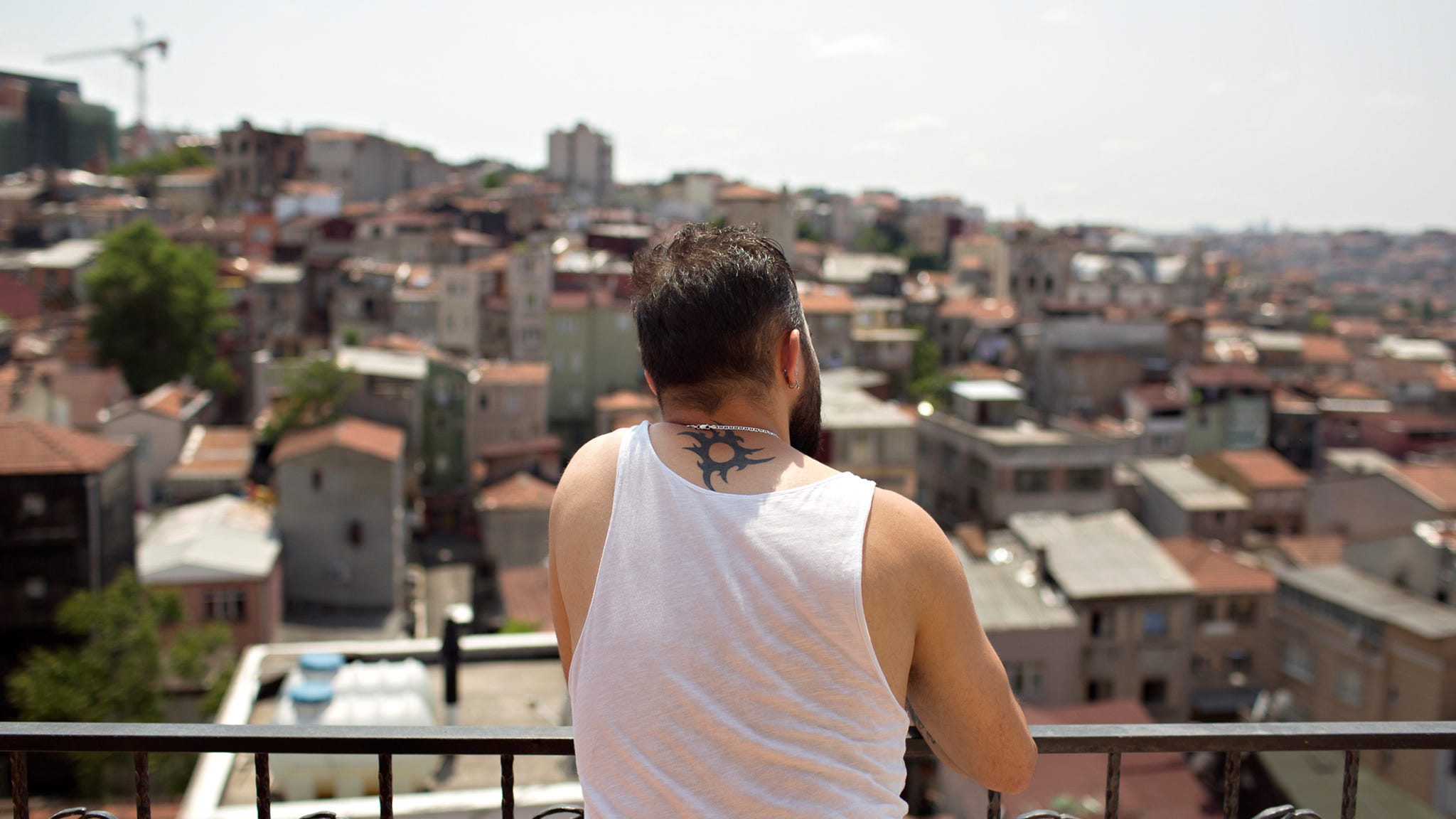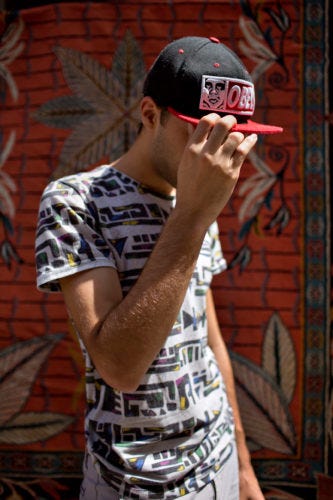Where LGBTQ War Refugees Finally Feel Safe
When you’re queer in the Middle East, escaping war doesn’t mean you’ve escaped the people who want you dead.
Seventeen-year-old Haron sits on a bench in Gezi Park, unsure of what to do next. Night is falling as rain clouds begin to roll over Istanbul. With just $50 in his pocket and no place to go, he finds a nearby tree, unzips his suitcase, and covers himself with jackets and sweaters. Rain hits his face as the magnitude of his journey from Syria begins to settle.
It’s November 2015 and Haron is a refugee who fled duel dangers: the civil war that has torn apart his country, and the constant abuse he received from his community for being gay. Haron arrived in Turkey with hopes of reaching a more LGBTQ-friendly place in Europe. But with little money, his journey is at a halt, and without a plan, he is left stranded and alone.
“I arrived in Istanbul that day and didn’t know anyone,” Haron recounted in a recent interview. “I lived in the park for two months, and every day I’d wake up to police in my face telling me to get up and go somewhere else.” (Like others interviewed for this article, Haron requested that his name be changed because of the ongoing threats he faces.)
Turkey is now home to around 3.6 million Syrian refugees. In 2015, there were approximately 400 self-identified LGBTQ Syrian refugees in Turkey, according to the Organization for Refugee, Asylum & Migration. The actual number is likely much higher because many are too afraid to speak out. They are accompanied by LGBTQ asylum seekers from Iran, Iraq, and other countries throughout the Middle East and North Africa. Homosexuality is illegal in many of these countries—even punishable by death in some—but legal in Turkey, making Istanbul a beacon for queer refugees.
At the bottom of one of Istanbul’s many hills, along a windy road lined with mosques, barber shops and tea gardens, is Istanbul’s only shelter for LGBTQ refugees. Not far from ancient Byzantine walls, Aman LGBT Shelter currently houses 14 LGBTQ refugees, the majority of them from Syria.
On a sunny spring afternoon at the top floor of Aman, a handful of residents sit in their rec room drinking coffee and enjoying sunny views. Residents dance to Lady Gaga tunes, which battle the constant serenade of seagulls, call to prayer, and bread sellers yelling down below. Mary, a 20-year old transgender refugee from Damascus, passes coffee around to her roommates followed by echoes of “Thanks, Mom.”

Each of these laughing residents has traveled long and far for this slice of peace. But they still face an uphill battle. Hostility to the LGBTQ community here in Turkey has risen in recent years. The Istanbul pride parade has been banned the past several years, turning a once peaceful event into an annual clash between LGBTQ activists and the police. Many Aman residents are fearful of going home and fearful of staying here. They see only one path forward: get to a more LGBTQ-friendly country in Europe, or die trying.




